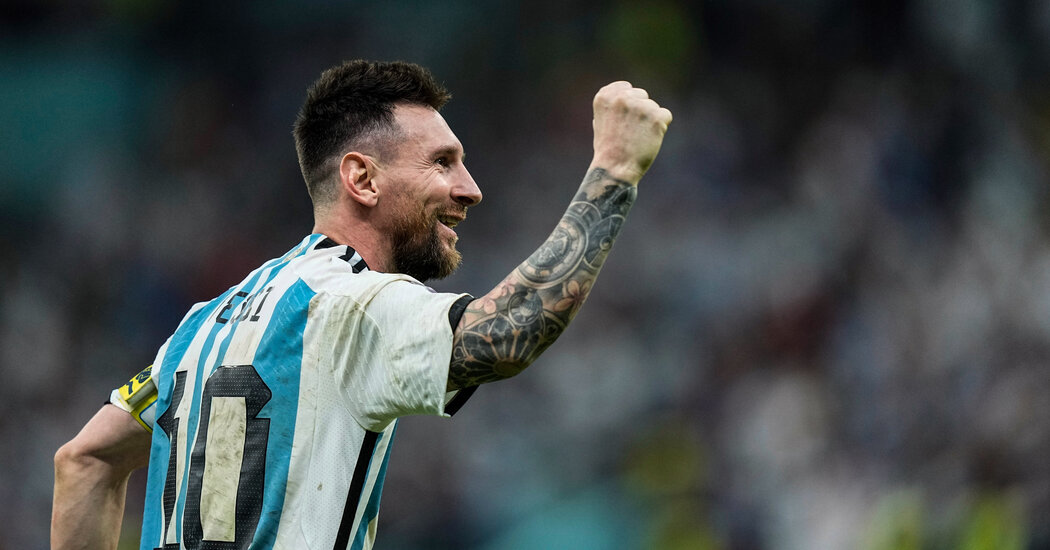
France’s commitment to proving the unrivaled depth of its resources, at this stage, swept past impressive long ago. It is now skirting the borders of remarkable.
Before the World Cup started, Didier Deschamps, France’s coach, had already lost five players to injury — most of them likely starters. Deschamps did not so much as blink. Here are five more, just like them.
A few days in, a sixth player, Lucas Hernandez, fell by the wayside. Deschamps — a man with an intense, deadpan demeanor that is only slightly undercut by a shy, coquettish laugh — did not even pretend to be flustered. Fine. If that’s how you want to play it, he’ll just go and become the first manager to retain the men’s World Cup in half a century despite being a player down. He did not bother summoning a replacement.
None of it has stopped France’s serene progress to a second successive final, of course. But it is not quite true to say that those absences have not affected Deschamps’s team in Qatar. While the French may have barely broken a sweat on their way to the quarterfinals, they were worried against both England and Morocco. There were, in fact, fairly long stretches of both games when the reigning champion was on the back foot.
France won the World Cup in 2018 without being thrilling; that team gave the impression that it always had another gear. This one, stripped of several key players, has looked just a little like it has reached its edge.
Against Morocco, France had been deprived of two more players: Both Adrien Rabiot and Dayot Upamecano were absent, suffering from a virus. It has been reported in France that the virus was contracted from England’s players during the quarterfinal, although the evidence for that claim is scant, at best. (A respiratory virus has been circulating in Doha all tournament; doctors, generally, have attributed it not to air conditioning, the diagnosis of at least one Brazilian wing, but to the influx of more than a million people to the city.)
Wherever the virus came from, in the days that have followed France’s semifinal, three more players have fallen victim to it: Raphaël Varane, Ibrahima Konaté and Kingsley Coman all missed training on Friday, 48 hours before the World Cup final. It is not in-depth soccer journalism to suggest that is not really ideal.
“Obviously, it would be better if this was not happening,” Deschamps said on Saturday, a remark that is impressively phlegmatic, even by his standards. “We are handling it as well as possible. We are trying to take as many precautions as we can, to adapt as necessary and get on with it.” France has done all it can to mitigate the spread, isolating certain players and introducing social distancing for others.
Assuming those measures work, Deschamps still finds himself in a complicated position. All of those players laid low by illness will wake up on Sunday morning adamant that they can play. They will report to France’s medical staff that their symptoms have entirely disappeared. Deschamps will hope, of course, that they are right: He will not want to go into a World Cup final without his three first-choice central defenders.
The problem is working out how much he can trust his players’ testimonies, and their instincts. Physical tests might suggest some, or all, of them are fit enough to start, but will fatigue set in quicker than normal? Will they be able to perform to the very best of their abilities, in the (joint) biggest game of their lives if they are still dealing with the aftereffects of a virus?
And if they cannot, what alternatives does he have? France produces players in such industrial quantities these days that it has long felt as if the country could send two teams to a World Cup, each of them capable of winning the whole thing. Now does not really feel the best time to test that theory.